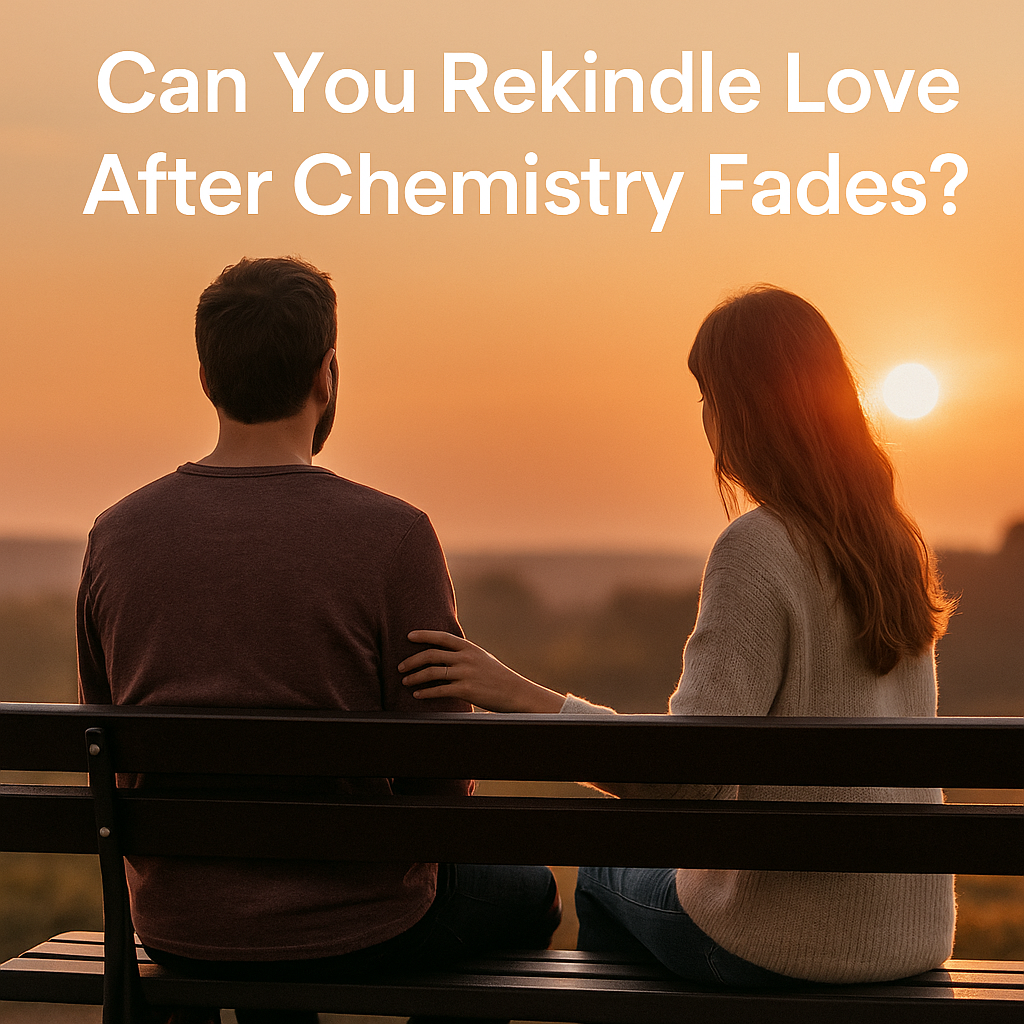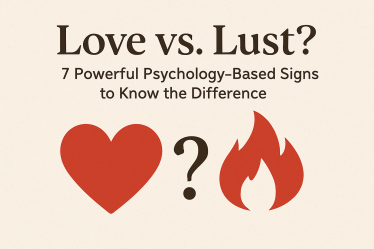
When the spark fades, does it mean the love is gone? Not necessarily.
Every relationship hits a point where the initial excitement levels off. The butterflies settle, the late-night talks become routine, and suddenly you’re wondering if this is the beginning of the end — or just a new chapter.
This article explores whether you can truly rekindle love after the chemistry fades. You’ll learn what “chemistry” actually is, why it fades, and most importantly — what you can do about it. Backed by psychology and expert advice, this guide is your first step toward rebuilding emotional intimacy and connection.
What “Chemistry” Really Means in Relationships
Chemistry isn’t just about physical attraction. It’s a mix of emotional connection, mental compatibility, and a cocktail of brain chemicals like dopamine and oxytocin. In the beginning of a relationship, everything feels intense and exciting. That’s your brain lighting up like a fireworks show — thanks to novelty and infatuation.
But that intense attraction isn’t designed to last forever. Over time, your brain adapts. The novelty wears off. Routine sets in.
That doesn’t mean something is wrong. It means you’ve moved from infatuation to something more sustainable — or at least, you’re being given the chance to.
Signs the Chemistry Is Fading — And Why It Happens
Here are a few clear signs that the chemistry in your relationship may be fading:
- Conversations feel more like task management than connection
- Physical affection is rare or feels obligatory
- You feel emotionally distant or misunderstood
- There’s more tension or silence than laughter and closeness
Why does this happen? Life. Careers, kids, stress, aging — all take a toll on romantic energy. What once came easily now takes effort. And when effort feels like work, people start to panic.
But fading chemistry isn’t failure — it’s a signal. A chance to reconnect.
Can Love Survive Without Chemistry?
The answer depends on how you define love.
Chemistry is important, but it’s not everything. Real love is often quieter than passion — it’s built on trust, shared values, respect, and commitment. It’s the “everyday glue” that holds couples together after the fireworks fade.
Long-term love is a decision, not just a feeling. That’s what most relationship experts, including Esther Perel and Dr. John Gottman, agree on. The couples who make it are the ones who keep showing up — even when things feel flat or uncertain.
Proven Ways to Rekindle Love and Emotional Intimacy
If you want to bring the spark back, you need action — not just hope. Here are five ways to rebuild intimacy and connection:
1. Make Time for Real Connection
Not just “date night,” but real, present-time together. No phones. No distractions. Talk. Laugh. Be vulnerable.
2. Try Something New Together
Novelty recreates the rush of early chemistry. Take a class. Travel. Do something outside your comfort zone.
3. Talk Honestly About Your Needs
Stop guessing. Openly share what you miss, what you want, and how you feel — without blame. Listen, too.
4. Rebuild Physical Intimacy
Not just sex — touch, hugs, hand-holding. Physical closeness builds emotional safety.
5. Get Outside Help if Needed
Therapy isn’t a last resort — it’s a smart investment. A counselor can help you identify patterns and rebuild your bond.
Studies show that couples who engage in new, shared activities report higher satisfaction and intimacy. That’s not magic — it’s psychology.
What to Do If Rekindling Doesn’t Work
Sometimes, even after all the effort, the spark doesn’t return — or one partner checks out emotionally. If you find yourself at this point, here’s what to consider:
- Have you both put in real, honest effort?
- Are your goals and values still aligned?
- Is staying together building you both — or draining you?
Leaving doesn’t mean you failed. It means you chose honesty and growth. If that’s the path, do it with care, respect, and support.
Conclusion: You Can Rekindle Love — If You Both Want It
Losing chemistry doesn’t mean losing love. It means the relationship is evolving. And with intention, effort, and communication, love can absolutely be rekindled — sometimes even stronger than before.
But whether you stay together or grow apart, what matters most is choosing a path rooted in honesty, self-respect, and emotional clarity. That’s what real love — and healing — looks like.



